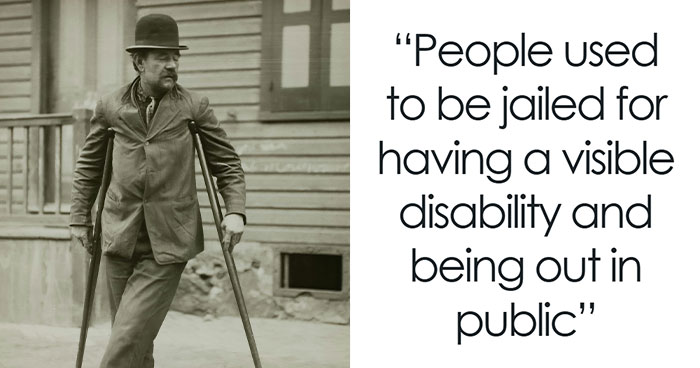I'm working towards getting my driver's license and was behind the wheel for the first time recently. I still haven't left the parking lot yet. Any advice is welcome.
This post may include affiliate links.
ZERO distractions when you’re first learning. No phone at all, turn it off, do not connect to the cars Bluetooth. No passengers. Don’t even turn the radio on-just changing stations or volume is a distraction. No eating, drinking, doing your makeup etc., 2 hands on the wheel. Leave a safe following distance. Other drivers can be àssholes, don’t let them get to you if they honk because they think you’re going too slow. Don’t speed
See, I disagree... have the same number of distractions as you usually would have. NO PHONES obviously but talking with your instructor or listening to music because... if you're with your friends and have only just gotten your license, the sudden addition of distractions, may, well, distract you. If you get used to background distractions then you're less likely to feel overwhelmed should you need to focus on manoeuvring or even parking with others in the car playing music and being loud. I have a friend who can't cope with having the stereo one while he drives because the sound makes it hard for him to focus. It helps train you to focus past distractions into the driving itself.
I don’t drive but I’ve concluded that driving way too slow is as dangerous as driving way too fast
Do not keep your hands at 10 and 2. Many parents will say 10-2 when teaching you but times have changed since they were taught that. Cars now have airbags in the steering wheel and if you are in an accident and the airbag deploys 10 and 2 puts your wrists in its path at close range and can do some serious damage. Keep your hands at 9 and 3 so your wrists go straight down instead of inward. Also if this wasn't clear it's referring to hours on an analogue clock with 12 being top centre. 3 and 9 are right centre and left centre respectively.
Try driving in different pairs of shoes whilst you're still learning. I drive in the same shoes ever lesson and had a different pair for my test and it really threw me off!
Yes and relatedly NEVER drive in thin heels or high heels as it makes feedback harder, pedal control harder and general dexterity tricky plus depending on your pedal design they can sometimes get caught in the pedal itself. If you wear heels regularly, always keep slip on driving shoes in your car. You may not realise how much worse high heels makes you as a driver but... sometimes insurance will have on their clause about wearing 'sensible footwear' and will not cover a collision because at the time of the collision you were wearing heels'.
Narrate the things you do. Like, "I'm pulling up to a stopsign, so I'll turn on my blinker and slow down, and now I'm going to check for cars, and there's no one coming, so I'm good to go." It helps your focus and gets you to notice things.
Probably not what you look for, but: If there's any chance to learn how to drive with a stick shift (manual transmission), then do so. Europe still has quite some manual shifted (rental) cars. And even more so in Mexico and South America- if you plan to travel and rent a car there somewhen, then it's good to know how to drive a manual.
Start slow and don't stress out. Driving a car is rather easy but initially it requires developing muscle memory for certain tasks like shifting gears in manual transmission. So, try to learn slowly. And it is easier to learn driving with no music or other distractions.
If at all possible, pay a driving school to teach you, especially if you're very anxious about driving. You learn in a car that your instructor can control at all times. This was a lifesaver for me, as I tended to panic and forget which pedal was for braking.
Don't stress. Stay positive. Practice adjusting your mirrors and clicking on your turn-signals/lights until you do it automatically without being a distraction. The other drivers are (for the most part) more experienced than you. It's okay to slow down a bit or take a little longer backing up. It is better to be safe then to rush things and make a mistake. A big thing I found, especially when driving on the highway, is to realize that it is the other drivers job to not hit you. Be aware of other people, but as long as you signal them what you are doing, you should be okay. My sister used to panic on the highway because she was afraid other people wouldn't slow down for her if she had to pull over or turn. They will. If you are always watching out for everyone else's driving as well as your own, it will become overwhelming. Also, a repeat of what @sophia baxter said, practice with different types of shoes. It really does make a difference what you are wearing.
One tip that my uncle talked about when I was a kid and what I remembered when I took my driving lessons: always look through the rear window and windshield to look at the car in front of the car that’s in front of you. This way you have more overview of the traffic that’s in front of you. The second cars brakelights light up? You get your foot of the gas. They drive curling? Keep your distance.
Learn what to do in emergencies like hydroplaning, flat tire, ice/snow, etc. Don't rely on other drivers to drive safely and learn defensive driving. Respect that you're operating a machine capable of big damage in a split second but don't be afraid of it because it can also save your life. Get to know the basics of how it works and give the manual a read, even if that feels dorky. Take your time learning. Your comfort level with driving is more important than how fast you learn. Drive parking lots and any empty back roads you might have nearby that are beginner friendly without hills and sharp turns.
Learn what to do in emergencies like hydroplaning, flat tire, ice/snow, etc. Don't rely on other drivers to drive safely and learn defensive driving. Respect that you're operating a machine capable of big damage in a split second but don't be afraid of it because it can also save your life. Get to know the basics of how it works and give the manual a read, even if that feels dorky. Take your time learning. Your comfort level with driving is more important than how fast you learn. Drive parking lots and any empty back roads you might have nearby that are beginner friendly without hills and sharp turns.

 Dark Mode
Dark Mode 

 No fees, cancel anytime
No fees, cancel anytime 






















































